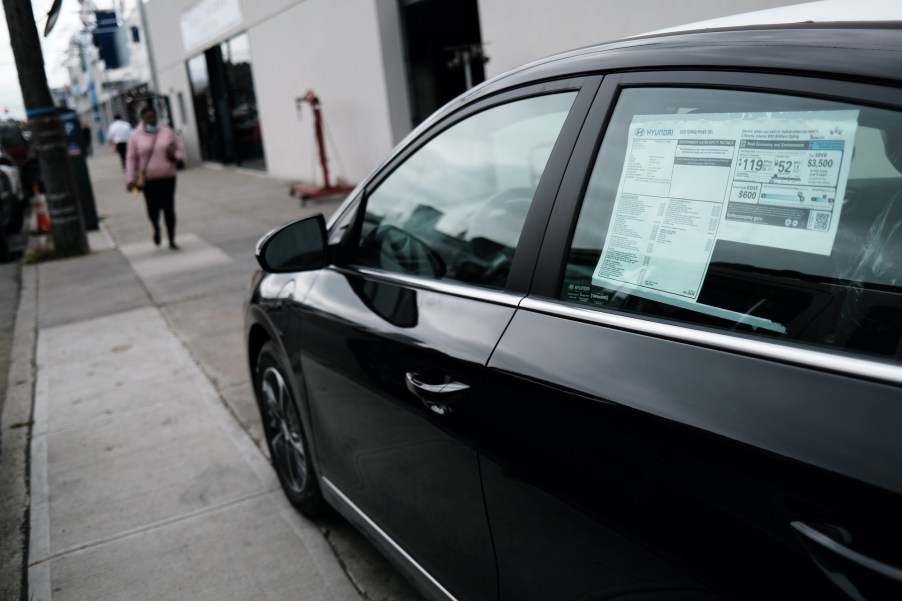
If You Hate Your New Car, Here Is How Long You Should Wait Before Trading It In
Believe it or not, buyer’s remorse is still a factor after purchasing a new car. And while you technically can’t return a car like you can a shirt or a household appliance, you can trade it in for a different car if you’re really unhappy with it. By doing so, you’ll take a massive hit in depreciation, but if you wait long enough, it might not be as bad.
Wait until the depreciation slows down before trading in your car

Before trading in your car, it’s important to understand the various factors that can affect its trade-in value. Cars Direct notes that depreciation is the main culprit, which unfortunately cannot be stopped. As you rack up the miles on the car and possibly incur small damages like scratches and rock chips, its value will decrease, which will result in a lower trade-in value.
As far as when you should trade in the car for a different one, it’s ideal to wait about three years into your ownership, which is when a car’s depreciation rate tends to slow down. For most cars, there is a depreciation delta at the three-year mark, after which you’ll have a better chance of getting the most value when trading it in. If you trade it in too soon, then you may lose out on more money. And if you trade it in after, you may lose out because it will have more miles accumulated and be worth less.
Here are other factors that can affect your car’s trade-in value

If you decide to trade your car in for another one, then it’s important to understand the factors that affect its trade-in value. When it comes to appraising your car, dealerships will look at a few factors, including:
- Mileage and condition: This one is pretty straightforward – the higher the mileage and the poorer condition your car is in, the lower its trade-in value will be.
- Actual cash value: This is the actual cash value that the car is worth. Most dealers will use Kelley Blue Book’s values or NADA to obtain this information.
- Equity: If your car is worth more than the value of the car loan, then it will have positive equity. But if it is worth less than the remainder of the loan, it will have negative equity.
What if the car has negative equity?

If your car ends up having negative equity, then you’ll owe the difference on the loan when you trade it in. For example: If you owe $20,000 on the car that you want to trade in, but it’s only worth $17,000, then you’ll have $3,000 in negative equity to deal with.
Don’t worry; all is not lost, as you will have some options in this case:
- Rollover the negative equity: If you plan to trade a car in with negative equity, some lenders will allow you to roll over the difference onto the new car loan. In this case, you’ll be adding that difference to the new sum, which means that you’ll have a higher monthly payment. But at least you’ll have the car that you want.
- Pay the difference: Referring to the example above – you can pay the $3,000 difference to the lender and then trade the car in.
- Wait until the loan is paid off: If you have the patience, then you can always wait until the loan is paid off, or paid down more in order to eliminate some, or all, of the negative equity.
If you hate your car, then it could be better to hold onto it
If you really hate the car that you just bought and want to trade it in, then, by all means, do so. Just keep in mind that you could incur a huge loss due to the negative equity. On the other hand, if you can wait to trade it in, it could be a better choice, financially speaking.
Either way, you’ll at least get into the car that you really want. But it’s up to you how much money you want to lose.



